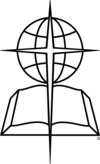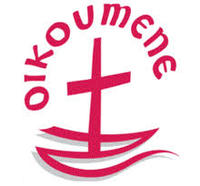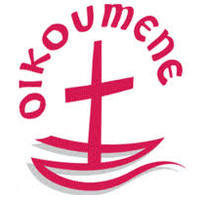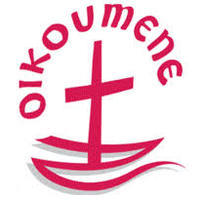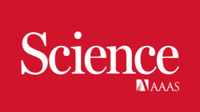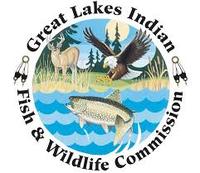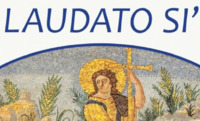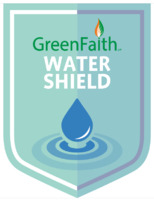Search
288 items
-
On Global Warming
This first half of this message posted on the Southern Baptist Convention website provides some key time frames with regard to ongoing climate issues. The second half focuses on responses from/actions taken by Southern Baptists. An additional overarching theme is humans responsibility for care for creation and, in particular, the poor. -
The United Church of Christ and Climate Change
This article from the United Church of Christ points to specified time periods/salient highlights of their responses to various environmental issues over the past 15 years. The United Church of Christ recognizes climate and energy issues as moral and ethical issues that affect everyone. However they also acknowledge that it most negatively impacts those with the least access to resources. -
A Resolution on Climate Change 2007 GS26
In 2007, The United Church of Christ put forth a resolution on climate change. They acknowledge the negative impact of global warming and urge governing bodies to support measures that reduce green house gas emissions. The following is an excerpt from the 2007 resolution on climate change:
"WHEREAS, the predicted impact of global warming will have a disproportionate impact on those living in poverty, least developed countries, the elderly and children and those least responsible for the emissions of greenhouse gases;
THEREFORE, BE IT RESOLVED that the Twenty-sixth General Synod of the United Church of Christ admits Christian complicity in the damage human beings have caused to the earth's climate system and other planetary life systems, and urges recommitment to the Christian vocation of responsible stewardship of God's creation, and expresses profound concern for the pending environmental, economic, and social tragedies threatened by global warming, to creation, human communities and traditional sacred spaces;
WE FURTHER RESOLVE that the Twenty-sixth General Synod of the United Church of Christ urges the United States Government to respond to global warming with great urgency and firm leadership by supporting mandatory measures that reduce the absolute amount of green house gas emissions, and in particular emissions of carbon dioxide, to levels recommended by nationally and internationally recognized and respected scientific bodies;" -
World Council of Churches Endorses Fossil Fuel Divestment
This message from the World Council of Churches (WCC) discuss their endorsement of fossil fuel divestment (2014 Geneva, Switzerland). WCC is one of a growing number of religious groups to support the fossil fuel divestment movement. The introduction is stated below:
"The Central Committee of the World Council of Churches (WCC), a fellowship of over 300 churches which represent some 590 million people in 150 countries, endorsed fossil fuel divestment this week, agreeing to phase out its own holdings and encourage its members to do the same." -
Care for Creation and Climate Justice
The World Council of Churches provides a brief description of their stance on care for creation and climate justice on their website. The following is an introductory statement, urging individuals forgo over-consumption and greed:
"The present world development model is threatening the lives and livelihoods of many, especially among the world's poorest people, and destroying biodiversity. The ecumenical vision is to overcome this model based on over-consumption and greed." -
WCC augments Vatican’s call to address climate emergency
The World Council of Churches (WCC) calls on those in position of power to listen to the urgent protests and take action accordingly. The following is an excerpt from the article, indicating WCC's stance of solidarity with Vatican’s Dicastery promotion of integral human development:
“When we hear the call from the youth and children on the street, the facts from scientists with all the knowledge, the witnesses from indigenous people of the world and the cry from the Earth we must come together as one humanity in a hopeful action of transformation,” said Grape. “In this struggle for climate justice, the WCC is happy to be working in the same direction as the Vatican’s Dicastery for Promoting Integral Human Development. We work together in an open ecumenical spirit to end climate injustice and move to a more peaceful sustainable future.” -
Climate Change
The World Council of Churches calls individuals to modify their consumer lifestyle for the greater good - to improve shared environmental conditions for all and with less negative impact among the poor. This excerpt provides a sense of urgency to act to reverse the threat of climate change:
"The urgency of the threat of climate change requires our generation to take immediate action and go beyond simple declarations and statements. New alternative models of life are called for. We challenge all people to move towards a style of life that derives its quality from the attentive enjoyment of nature and human relationships, from mutual care, dependence, trust and solidarity instead of the illusions of individual autonomy and material wealth, from spirituality and feelings of community, connectedness and intimacy instead of one-dimensional self-centredness. We draw strength from insights gained from the rich, community- oriented and simple lifestyles of indigenous and other marginalized communities. We are conscious of the significant contribution these communities, with their low carbon economies, deliver to the stabilization of the climate. We recommend the creation of 'just, participatory, sustainable and sustaining communities' for mutual support and call upon the churches and authorities to join them on this journey with reflection and practical support." -
The Pope on Sustainability
An article written in Science Magazine covers the Pope's take on sustainability and environmental accountability. The Pope has inspired other religious leaders to also raise their voice about environmental issues like combating climate change. The introduction of the article notes that:
"The problems that motivate the Vatican are no different from those that concern the scientific community: depletion of nonrenewable resources, loss of ecosystem services, and risks from changing climate. But what the Vatican contributes is the rationale for taking action: because it is our moral responsibility to bequeath a habitable planet to future generations". -
Water
The World Council of Churches discuss the issues of access to fresh water in various parts of the world and its impact on the survival of many communities, as well as biodiversity in general. The following excerpt provides more detailed information on this environmental injustice:
"The survival of 1.2 billion people is currently in jeopardy due to lack of adequate water and sanitation. For the same reason, the lives of 6,000 children are lost every day. For those struggling with HIV/AIDS, poor or no water is yet another barrier to overcome.
In today’s world unequal access to water causes conflicts between and among people, communities, regions and nations. These conflicts exist in areas where there is a lack of water or where the main part of the water resource is polluted. Very often in these situations the poorest people bear the heaviest burden." -
Lutheran, Anglican, Episcopal leaders offer pastoral message on climate change
This message from leaders of the Evangelical Lutheran Church in America (ELCA), Evangelical Lutheran Church in Canada, Anglican Church of Canada, and The Episcopal Church, emphasizes that all individuals have contributed to climate change. However, they offer hope that God himself has not given up on care for creation. They urge individuals to discern opportunities to curb energy use, decrease carbon emissions, and reduce consumer waste. -
Episcopal Church, Church of Sweden, ELCA commitment: "Sustaining hope in the face of climate change"
The heads The Episcopal Church, the Church of Sweden, and the Evangelical Lutheran Church in America (ELCA) signed a joint commitment to climate statement. The following are five salient points from their commitment:
"1) Advocate for national and international policies and regulations that enable a swift transition from dependence on fossil fuels to clean, safe, renewable energy, and for economic systems that are fair and just.
2) Sustain an interfaith, international conversation around climate change and social and economic justice while working to keep climate change in the public’s attention.
3) Encourage our faith communities to deeper theological reflection on the moral and ethical response to climate change, and then to make public witness about climate change through advocacy at the local, national and international levels.
4) Invite our communities to prayerfully consider how their own actions, lifestyle choices – particularly our energy consumption -- affect the environment.
5) Offer our communities continued opportunities to learn about climate change and the universal church’s response to this crisis." -
A Spiritual Dimension and Environmental Education: Buddhism and Environmental Crisis
Kongsak Thathong writes about the environmental crisis and how a Buddhist environmental ethic may help in solving environmental problems. Buddhism may also help in education; the Lord Buddha encouraged environmental education, and learning about the Earth and its resources may protect it from the greed and selfishness that humanity spreads. Buddhism's three tenets of Right Behavior, Mind, and Understanding are virtues that people can change in themselves to care for the Earth.
-
Wanted: Innovative Farmers to Help Slow Algal Bloom on Lake Erie
The Christian Science Monitor has written an article discussing how agricultural nutrients in the Maumee River, Lake Erie’s biggest source of pollution, are reaching record proportions. Most nutrient pollution is caused by large storms, and with climate change, these storms are becoming increasingly more common. The USDA reports that farmers are making headway toward reducing nutrient pollution on a voluntary basis, but many researchers say that these efforts are not sufficient. A recent report suggests additional outreach, an increased focus of conservation dollars, and mandated soil testing.
Wetland restoration – bringing back bits of the Black Swamp— can play a pivotal role in clearing algal bloom in Lake Erie. The Black Swamp Conservancy is currently working on turning 60 acres back into swamp in northwestern Ohio. William Mitsch, a retired Ohio State University professor and wetlands expert, hopes to eventually restore a tenth of the Black Swamp (about 100,000 acres) to provide a substantial cleaning of Lake Erie. -
Cleveland's St. Casimir Church Implements Green Infrastructure Practices
St. Casimir Church of the Cleveland Catholic Diocese wins the Northeast Ohio Regional Sewer District's Green Infrastructure Grant! The church will be implementing permeable pavers, and rain water basins with the grant. This effort helps give stormwater new life and redirect water pollution. St. Casimir's expresses gratitude for their community's support. Read more at the link below. -
The Importance of Water to Faith Communities, and How to Conserve it!
The Ohio Interfaith Power and Light provides information on the spiritual importance of water, along with a teaching activity for the topic. The attached also includes tips on how to help your congregation conserve water. -
Saving Buffalo Reef
This 11-minute video, by the Great Lakes Indian Fish & Wildlife Commission (GLIFWC), informs the viewer of the natural, cultural, and economic importance of Buffalo Reef. This reef is located off the Keweenaw Peninsula, Michigan, in Lake Superior. Buffalo Reef is currently under ecological distress due to local mining activities. Current Tribal, State, Federal, and Academic efforts are underway to help restore this significant environmental feature, as documented in this video. -
Bloomberg Business Posts Infographic to Show “What’s Really Warming the World?”
Occasionally, an outstanding graphic emerges to help us understand some of the complexities of climate science, such as this recent series of graphs published by Bloomberg Business. If you have wondered how all the various factors and forcings involved in global warming interact, these infographics based on data from NASA’s Goddard Institute for Space Studies are very helpful. -
Laudato Si' Adds Catholic Voice to Diverse spectrum of Religious Creation Care Views
Here are some links to the encyclical and related educational materials and statements that have been developed by different religious communities, including a letter of support from over 400 Rabbis, and a new Islamic statement on the environment:
Laudato Si’: Praise Be To You: On Care for Our Common Home: (html)
Laudato Si’ study guide from the US Conference of Catholic Bishops: (pdf)
National Catholic Reporter Reader’s Guide to Laudato Si: (pdf)
The Shalom Center with its history of ecological practices: (url)
Announcement of the Rabbinic Letter on the Climate Crisis: (url)
Islamic Declaration on Global Climate Change: (url)
United Methodist Bishops Pastoral Letter: God’s Renewed Creation: Call to Hope and Action: (url)
Lutheran Study Guide to Pope Francis’ Letter on Climate Change: (pdf)
Evangelical Declaration on the Care of Creation: (url)
National Association of Evangelicals 2015 Call to Action on Creation Care: (url)
A Buddhist Declaration on Climate Change: (url)
Buddhist Climate Change Statement to World Leaders 2015: (url)
Black Church Climate Statement: (url)
-
Muslims and Water Conservation
The United Nations recognizes World Water Day on March 22. The Muslim community is taking this message to heart with discussions of water conservation. The following excerpt provides a brief summary of the Muslim khutbah with regard to the topic of water scarcity:
"The purpose of today’s khutbah is to remind us that the conservation of water and more broadly environmental consciousness should be an integral part of what it means to be a conscientious Muslim. An environmentally conscious Muslim is someone who lives in reverence and harmony with nature and uses water and all other natural resources frugally and sparingly." -
Water Shield
Water Shield is a program hosted by GreenFaith that helps congregations learn how to conserve water as well as maintain high water quality. This program promotes stewardship, and can help gain a community recognition for their efforts in the environmental awareness world. Water Shield is an eco-merit badge that is bestowed upon faith-based institutions that have taken steps to conserve water, protect water quality, and mobilize its members and community to do the same at home. -
Changing the Columbia River Treaty
Many groups, including faith communities, have called for a restructuring of the Columbia River Treaty. The original treaty was written in 1964, and has become outdated. The people calling for the change want the river to be valued for its ecosystem services that were not included in the original treaty. -
World Help Providing Water for Kirinda, Uganda
World Help, a Christian organization, is raising money to provide clean drinking water to the people of Kirinda, Uganda. They are attempting to fund three major projects, a water well, piping, and irrigation. The lack of clean sources of water for the people who live here is causing diseases and additional hardships. -
A Sermon for World Water Day
Susan Barnett, founder of Faiths for Safe Water, brings attention to World Water Day by highlighting award-winning filmmaker and photographer, Haik Kocharian. Haik recently releasing, “Blessed by Water,” showing rare images of water in tradition, ceremony and spirituality as celebrated by the Christian Orthodox community in Ethiopia. Susan continues to discuss the concerns of clean water worldwide: 663 million men, women and children are forced to drink low quality water; and one third of the world's population don’t even have the dignity and safety of toilets. The article concludes by encouraging church leaders to use their collective voices to advocate for increased access to safe water and sanitation in order to improve global health, nutrition, poverty, gender equality, food security, human security, and peace. -
World Water Day Synopsis
The United Nations and the global community in general recognize World Water Day as a reminder that much of the world faces a global water, sanitation and hygiene crisis. 663 million people—comprising mostly the poorest and most marginalized in the world—live without access to safe drinking water. In addition 2.4 billion people lack access to improved sanitation. The article suggests various ways that individuals can contribute to improving the water conditions in these areas. -
A Sinking Island
Many people who currently inhabit one of four small islands in the Pacific Ocean are being forced to evacuate their homes. The rising sea levels have washed away their homes and eroded their beaches. In addition, their sources of freshwater are being contaminated. This unfortunate circumstance is a prime example of Pope Francis's message on the impact of climate change.

